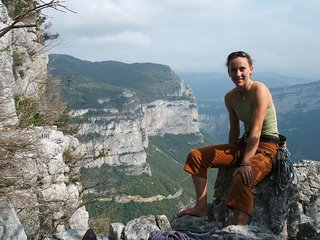How I Spell Adventure
I will never forget how to spell adventure.
In second grade we had spelling quizzes every week. I was great at spelling, because I had a fool-proof memory trick. So good that I still use it today. “Extraordinary,” for example – it’s easy to forget that a in there, phonetically, but if you think of it as two words put together, “extra” and “ordinary,” you’ll never go wrong. Just as if you sing “advent” and spell “u-r-e” you get a fun rhythm and the correct spelling of “adventure.” Okay, perhaps that’s a bit of a stretch for a memory trick, but the wonderful thing about memory tricks is that they are highly personalized and function best when tailored to however it is your own brain works.
Years later, after spelling had become second nature, I found myself presented with another challenge: remembering the meaning of new, strange, and challenging words. I would search to apply something sensible to each word that would make me think of its meaning, somehow divide the word into its roots, or…
The word “cacophony” is an excellent example of a word which sounds like what it means. A discordant or dissonant sound. The strong consonance of the two c’s makes a rather harsh sound, and, getting more complex now (as I had gotten older and wiser by the time this word came into my life), you have “phony” which comes from… well, I don’t know what it comes from, but you think automatically of a telephone, perhaps “Hooked on Phonics,” and there it is, something that has to do with sounds.
And perhaps just as pleasurable as finding the perfect memory trick to remember a challenging word is finding ones’ self in a situation where there is only one word for that moment, and you know exactly what it is. And from then on you think of that moment every time you hear that word. It is from the discovery of that moment, lying in bed awake at 5 in the morning, without even the slightest desire left to sleep, that I will always smile when I hear the word “cacophony.” I could blame it on the jet lag, having flown over the Pacific the day before, but it wasn’t that at all. It was the cacophony of laughing kookaburras, magpies, and other (to me) exotic birds orchestrating outside my window. Never in my life had I heard such sounds. “Cacophony” was no longer a word, but an Australian souvenir.
The next vocabularical (I like inventing words, too) challenge would come from plunging into the French language. Here, I have discovered yet another new way to learn and remember words, and I call it “immersion driven vocabulary expansion” because, well, I like words – the more the merrier.
“Pelle” is a dustpan, and I will always think of the dustpan fixed to the broom hanging in the bathroom (with all the time we must spend in the bathroom in a year, what a great opportunity to find new vocab words!), its original sticker label, “pelle bord caoutchouc,” never removed.
“Concasser” is almost as it sounds in English: to crush (i.e. when grinding wheat), but we never use it like that. Among my climber friends, it is a word of encouragement and motivation – “you’re going to crush that route!” “Concasse! Concasse!”
“Flatter” – exactly what it is in English, but pronounced with a cute French accent (flat-TAY). What on earth do you say when a bud tells you he’s falling in love with you and you feel nothing more than friendship? Umm, uhh, thanks…? Hehe…um, that’s very flattering.
Appropriately, I searched for a translation for “doofus” after I pulled this one, but alas, it is a word perhaps too elite for Harper, Collins and Robert.
“Prendre de l’élan” means to gather momentum: Jonathan’s instructions just before we rounded a corner to meet the long hill that separated his apartment from the Toulouse Sunday market in the old center.
More to come…


0 Comments:
Post a Comment
<< Home